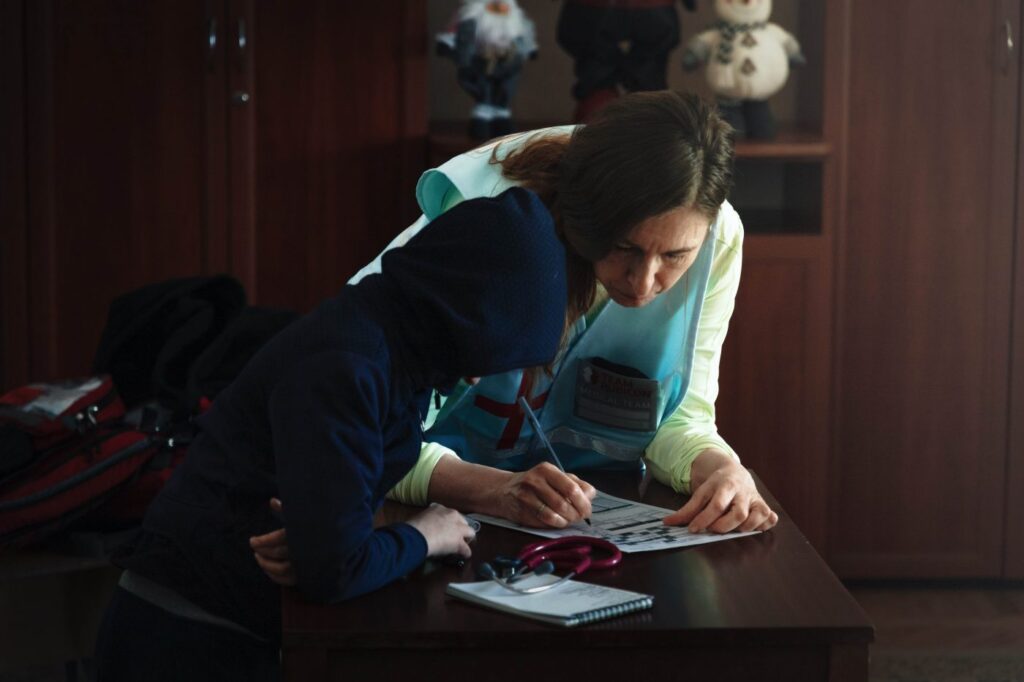Doctor Erica Nelson has seen a few things in her day: She started her career in humanitarian aid approximately 20 years ago during the Nepalese civil war, then served in India and Tibet, in Southeast Asia in response to a typhoon, and in Jamaica after a hurricane. Half a dozen years later she earned a master’s degree in how to provide medicine in conflict-affected places, then worked on projects for Sudan and Sub-Saharan Africa, the Middle East, Somalia, and Kenya. Later, while earning her M.D. and during residency, she continued doing humanitarian work in places like Ethiopia and Palestine. Recently, she has worked on projects in Bangladesh and Myanmar, the Philippines, and more.
Now an emergency medicine doctor in Massachusetts, head of Harvard’s Humanitarian Geoanalytics Research and Education Programs—where she “uses maps and math to improve humanitarian programming,”—and Team Rubicon’s medical director, Nelson is in western Ukraine serving internally displaced persons.
Under Attack and Displaced Out of Care
While humanitarian emergency medical providers like Nelson may prepare for an outbreak of disease in the middle of the Congo or a typhoon in the Philippines, what they don’t typically prepare for is the upheaval of a country with a progressive and functioning healthcare system. Nelson has seen humanitarian crises in low-income countries hit by natural disasters and nations devastated by conflict before, but she has never seen dialysis patients who became refugees overnight or transplant recipients displaced out of care.

“This is a well developed nation that has been invaded,” says Nelson. “So many of the other conflicts that I’ve responded to have been in low-income countries; in places where the healthcare system is broken. This is a very, very different circumstance. We have people who have been on chemotherapy who can’t get it anymore; we have people who have had strokes or are on dialysis.”
Such needs and their care are incredibly complex and complicated. So, while Team Rubicon volunteers can still be primary care doctors, urgent care doctors, pediatricians, trauma specialists, and nurses, the patients they are seeing in Ukraine also need specialists.
“It’s Going to Get Worse”
Nelson and team are currently working at several sites in western Ukraine—a mobile medicine unit allows them to meet displaced persons where they are—and are primarily providing pediatric health, maternal and reproductive health, mental health, and emergency care.

For now, at least. Cast her gaze six weeks into the future, though, and Nelson sees pain and trauma on the horizon. Especially as internally displaced persons, including people who had been sequestered in places such as Mariupol, begin moving westward.
“We’re going to see a lot of pain; a lot of secondary trauma—trauma that has not been taken care of for a while,” says Dr. Nelson. “We’re going to see people who have been months without their medications, as opposed to days without their medications. It’s just going to get worse.”



